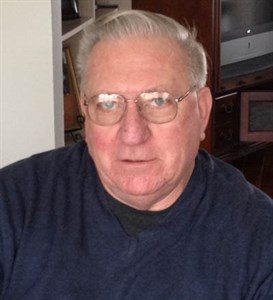Interview, Thomas Ras, USA
 Thomas Ras (b. 1947) was born and raised in Rochester, New York, and graduated from Edison Technical High School. He enlisted in the United States Army on September 20, 1965, at the age of 18. Ras completed basic training at Fort Dix, in New Jersey, and advanced training in personnel administration at Fort Ord, in California. He volunteered to go to Vietnam and was sent to Quy Nhon in June 1967. Ras served two tours in Vietnam between 1967 and 1969 and was in country during the Tet Offensive in January 1968. After being honorably discharged from the military in July 1969, he returned to Vietnam and worked for an entertainment management company until 1971. He married a Vietnamese woman he met during his service and brought her and her son back to Rochester, where he went to work for the City of Rochester and joined the local Vietnam Veterans of America, Chapter 20.
Thomas Ras (b. 1947) was born and raised in Rochester, New York, and graduated from Edison Technical High School. He enlisted in the United States Army on September 20, 1965, at the age of 18. Ras completed basic training at Fort Dix, in New Jersey, and advanced training in personnel administration at Fort Ord, in California. He volunteered to go to Vietnam and was sent to Quy Nhon in June 1967. Ras served two tours in Vietnam between 1967 and 1969 and was in country during the Tet Offensive in January 1968. After being honorably discharged from the military in July 1969, he returned to Vietnam and worked for an entertainment management company until 1971. He married a Vietnamese woman he met during his service and brought her and her son back to Rochester, where he went to work for the City of Rochester and joined the local Vietnam Veterans of America, Chapter 20.
In this interview, Ras explains that after graduating from high school, he joined the Army because he was seeking adventure and wanted to serve his country. He describes his military training as rigorous and beneficial and notes that he gained a reputation for his mischievous antics. Ras reveals that even though he volunteered, he was “nervous as heck” about going to Vietnam. Once there, he found the beach at Quy Nhon to be a relatively good place to be stationed, despite the heat, 12-hour work days, rats, snakes, and mosquitos. Ras discusses his work in transportation and notes that he had a lot of interaction with Vietnamese locals, but that it was difficult to know who to trust. He tells a story about falling in love with a Vietnamese woman that he eventually married and brought back to Rochester. Ras reports that he grew very close to the men he served with in Quy Nhon and he comments on the racial dynamics at the camp. Although he became 100% disabled from exposure to Agent Orange and has had numerous heart surgeries and skin problems because of it, Ras states that he would serve again “in a heartbeat” and that he supports the idea of mandatory service to one’s country.
